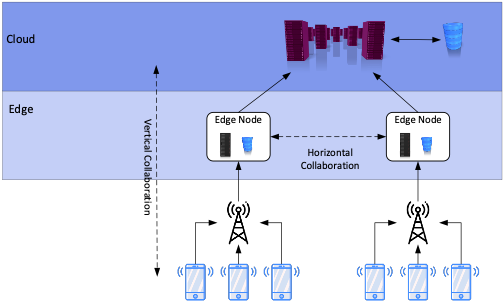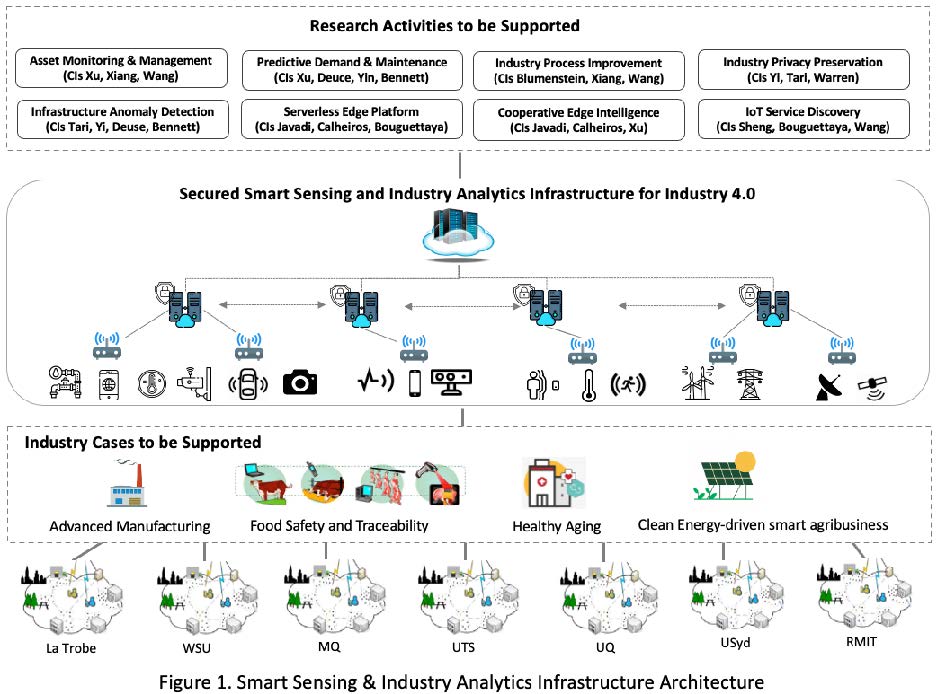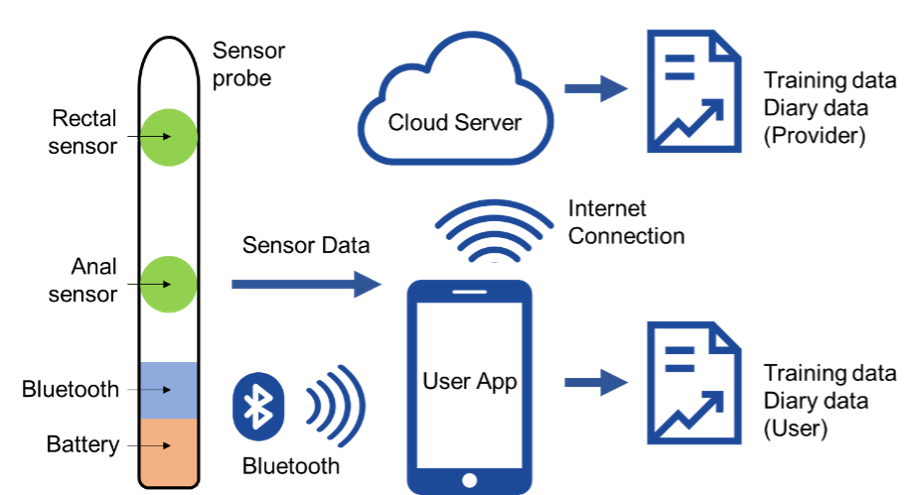Research Projects
Federated Learning on Edge Computing

This project focuses on implementing Federated Learning (FL) for Edge Computing, aiming to enhance privacy and efficiency. It involves developing machine learning algorithms for edge devices, optimizing lightweight models, and minimizing communication overhead. The research will explore decentralized model aggregation and evaluate the framework in real-world edge computing scenarios. The outcomes will contribute to advancing FL techniques for edge environments, addressing privacy concerns and optimizing machine learning model training on resource-constrained edge devices. This has a wide range of applications in space, healthcare and transport.
A Secure Smart Sensing and Industry Analytics Facility for Industry 4.0

This project aims at establishing a world-first large-scale experimental facility to enable research in the area of Edge computing, Smart Sensing and Industry Analytics. It will reproduce typical elements encountered in edge computing and Industry 4.0 in a controlled secure environment, enabling research that otherwise is difficult to conduct and reproduce. The facility is expected to be an essential instrument to achieve Australia’s leadership on key technologies for Industry 4.0, and to provide Australian research community with a unique platform for largescale experimentation and evaluation of Industry Analytics. It also serves as a perfect vehicle for the education and training of Australia’s next generation of scholars and engineers. This project is funded by ARC Linkage Infrastructure, Equipment and Facilities (LIEF). [ View Project Details]
Smart Irrigation Management for Parks and Cool Towns (SIMPaCT)

SIMPaCT is an innovative partnership program with Sydney Olympic Park Authority (SOPA). We are developing new smart technology to operate the current recycled water irrigation system, integrating real-time environmental sensing with forecasting, scenario modelling and machine learning. Real-time information will ultimately be streamed to SOPA and park visitors. SIMPaCT delivers clear benefits in all six key areas of the NSW Smart Places Strategy, having measurable, positive environmental, social and financial outcomes for residents, visitors and government.[ View Project Details]
New Internet-of-Medical-Things device for home-based treatment of anorectal disorders

Home-based healthcare provides a viable and cost-effective method of delivery for resource- and labour-intensive therapies, such as rehabilitation therapies, including anorectal biofeedback. However, existing systems for home anorectal biofeedback are not able to monitor patient compliance or assess the quality of exercises performed, and as a result have yet to see widespread clinical adoption. In this project, we develop a new Internet of Medical Things (IoMT) system to provide home-based biofeedback therapy, facilitating remote monitoring by the physician. [View Project Details]
Past Projects
- Ustawi: The project explores how information systems can be used to address the problem of hidden hunger in rural African communities. Hidden Hunger occurs when there is enough energy consumption by individuals but insufficient consumption of essential nutrients, resulting in health problems, micronutrient deficiencies, overweight and obesity. This project is aimed to address the first three United Nations Sustainable Development Goals.
- ARDC: This project investigated current and future demands for high throughput computing (HTC) tools and services in the research sector in Australia and how these services can be effectively supported. From a user perspective, the project aimed at identifying requirements of NCRIS capabilities and users for such capabilities. From a provider perspective, the project identified similar infrastructures overseas supporting HTC as well as the role commercial clouds can have in this space. From this work, we identified key themes that emerged across the user community including the need for higher level portal and management tools for interaction with the underlying infrastructure; the need for special purpose hardware such as GPUs; providing reusable microservices toolbox for domain-specific research platforms; and appetite for integration of research facilities with commercial clouds. This project has been conducted with the partnership of Intersect.
View ARDC poster - Failure Trace Archive: The Failure Trace Archive (FTA) is a centralized public repository of availability traces of parallel and distributed systems, and tools for their analysis. The purpose of this archive is to facilitate the design, validation, and comparison of fault-tolerant models and algorithms. This effort is in collaboration with INRIA Bordeaux and TU Delft. The project is funded by an INRIA project called ALEAE.
View FTA poster - Spot Prices: The surge in demand for utilising public Cloud resources has introduced many trade-offs between price, performance and recently reliability. Amazon’s Spot Instances (SIs) create a competitive bidding option for the public Cloud users at lower prices without providing reliability on services. We believe that characterisation of SIs as the goal of this research is fundamental in the design of stochastic scheduling algorithms and fault tolerant mechanisms in public Cloud environments for spot market.
Funding
- ARC Linkage Infrastructure, Equipment and Facilities (LIEF), 2021.
- Digital Restart Fund and Sydney Olympic Park Authority (SOPA), 2021-2022.
- Maridulu Budyari Gumal (MBG) Fund, 2021.
- Amazon Web Services (AWS), 2019-2020.
- Australian Research Data Common (ARDC), 2019.
- Ainsworth Medical Research Innovation Fund (MRIF), 2019.
- The Australia-Africa Universities Network (AAUN) – Partnership Research Development Fund, 2018-2019.
- WSU Research Development Funding, 2018.
- The Australia-Africa Universities Network (AAUN) – Partnership Research Development Fund, 2017-2018.
- NICTA/Data 61 Scholarship Funding, 2014-2017.
